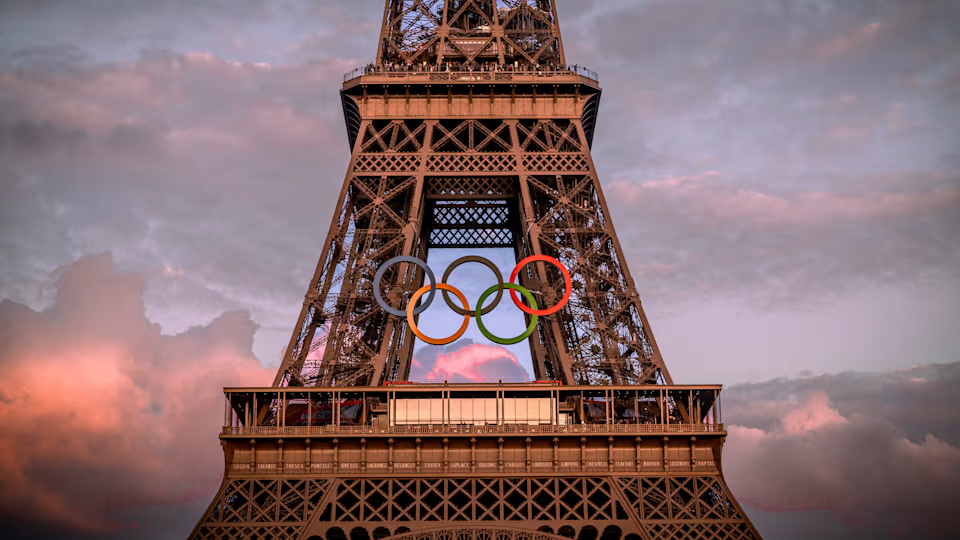Introduction: The Legacy of the Tokyo Olympics and the Road to Paris
The Tokyo 2020 Olympics, held in 2021 after being delayed by a year due to the global COVID-19 pandemic, were a landmark event that defied immense challenges. With strict health protocols, empty stands, and an atmosphere far from the usual Olympic fervor, the Games tested the resilience of athletes, organizers, and the global sports community. Despite these challenges, the Tokyo Olympics were still seen as a successful sporting spectacle, showcasing remarkable performances, overcoming adversity, and delivering a unique, pandemic-adapted version of the Games.
As the world looks ahead to the Paris 2024 Olympics, the question arises: can the next edition of the Games surpass the success of the Tokyo Olympics and the preceding editions? Paris is stepping into the spotlight at a time of great anticipation, with higher expectations set by both the public and the international sporting community. The question of whether Paris can build on the legacy of the previous Games and offer an experience that exceeds expectations is one that many are asking.
In this article, we will explore the legacy of the Tokyo 2020 Olympics, assess the challenges and opportunities that lie ahead for Paris 2024, and analyze whether Paris can meet or exceed the bar set by its predecessors.
Section 1: Tokyo 2020 Olympics—A Unique Challenge in the Face of Adversity
1.1 The Unprecedented Context of Tokyo 2020
The Tokyo Olympics were scheduled for 2020, but were postponed due to the global COVID-19 pandemic, marking the first time in modern Olympic history that the Games had been delayed. This decision was made to ensure the health and safety of athletes, officials, and the general public. The pandemic fundamentally altered the way the Games were organized and conducted.
- Empty Stadiums: One of the most significant changes was the absence of live spectators. Fans from around the world were unable to attend, which significantly altered the atmosphere of the Games. Athletes, who typically thrive off the energy of the crowd, had to adapt to competing in an environment with no cheering fans.
- Strict Health Protocols: The implementation of strict health protocols and quarantines affected not only the athletes but also the organizing bodies and workers involved in the Games. Teams had to be in constant communication with health officials, and many events had limited access to media, preventing the usual spectacle that Olympic Games are known for.
Despite these challenges, the Tokyo Olympics were widely regarded as a success due to the incredible performances of athletes, the efficient handling of the pandemic, and the resilience shown by everyone involved. The Games were a demonstration of perseverance, adaptability, and the strength of the human spirit.
1.2 Key Highlights and Successes of Tokyo 2020
Despite the many obstacles faced by organizers, Tokyo 2020 will be remembered for a number of key achievements:
- Stunning Athletic Performances: The Tokyo Olympics saw a series of historic performances. From Simone Biles’ comeback to Caeleb Dressel’s dominance in swimming, to Elaine Thompson-Herah’s Olympic record in sprinting, the Games saw numerous records broken and unforgettable moments that will be etched in Olympic history.
- New Sports and Innovations: Tokyo 2020 introduced new sports such as skateboarding, surfing, and rock climbing, which brought a fresh, youthful energy to the Games. These additions helped attract younger audiences and made the Olympics feel more modern and inclusive.
- Sustainability Initiatives: Tokyo also emphasized sustainability by introducing eco-friendly measures, such as medals made from recycled electronics, carbon-neutral venues, and the use of renewable energy sources. This focus on sustainability added a layer of significance to the Games, making them not just a sporting event, but a symbol of global environmental responsibility.
Section 2: Paris 2024 – Setting the Stage for a New Chapter in Olympic History
2.1 Building on the Legacy of Tokyo and Previous Games
With the challenges faced by the Tokyo Olympics, the Paris 2024 Games have the opportunity to deliver a unique experience that not only honors the legacy of Tokyo 2020 but also sets new standards for future Olympic Games. Paris, as the host city for the 33rd edition of the Summer Games, has already begun preparations that aim to set the bar higher in several key areas:
- Venue Selection and Urban Integration: Paris has plans to utilize iconic venues, such as the Champs-Élysées, the Seine River, and the Palais des Congrès, as well as temporary venues around the city. The use of historic and public spaces aims to bring the Olympics closer to the everyday people of Paris, making the event feel more integrated into the fabric of the city.
- Focus on Inclusivity: Paris 2024 is expected to build on the inclusivity of the Tokyo Olympics, with initiatives aimed at promoting gender equality, fostering diversity, and ensuring greater access for athletes with disabilities. For example, women’s sports will see an even greater presence, with the inclusion of women’s boxing and other events where women will compete in equal numbers to men for the first time.
- Technology and Innovation: Paris aims to incorporate cutting-edge technology to enhance the spectator experience, including virtual reality (VR), augmented reality (AR), and AI-based systems to improve fan engagement both in-person and online. These innovations could offer spectators a more immersive Olympic experience.
2.2 Legacy Goals: Sustainable and Equitable Games
Sustainability remains a critical focus for Paris 2024, building on the successes of Tokyo. The Paris Olympics are committed to delivering the most sustainable Games in history, with a focus on reducing the carbon footprint and ensuring long-term legacy benefits for the city and its inhabitants.
- Sustainable Infrastructure: Much like Tokyo, Paris plans to use existing venues and infrastructure wherever possible, reducing the need for new construction. This effort aligns with the city’s commitment to environmental sustainability and reducing waste. Temporary venues will be set up for certain events, and much of the infrastructure is designed to be repurposed for post-Olympic use, ensuring the longevity of the Games’ impact.
- Inclusive Economic Benefits: Paris is also focusing on using the Olympics to boost local economies, particularly through job creation, tourism, and increased investment. However, there is an emphasis on ensuring that these benefits are spread across all segments of society, with a strong commitment to economic inclusivity.

Section 3: Can Paris Surpass the Success of Previous Olympics?
3.1 The Legacy of London 2012 and Rio 2016
Before Tokyo 2020, the London 2012 Olympics were often considered the gold standard for recent Games. The event was highly praised for its organizational excellence, spectacular ceremonies, and positive impact on the local community. The success of London 2012 set a high bar for any future Olympics, and Paris will need to live up to these expectations.
The Rio 2016 Olympics, on the other hand, faced challenges due to political instability, economic turmoil, and concerns about the country’s ability to deliver. While the Games featured spectacular performances and emotional moments, they are often remembered for their organizational issues and limited long-term impact on the Brazilian economy.
For Paris to succeed, it must learn from both the successes of London and the mistakes of Rio. By focusing on organization, sustainability, and legacy, Paris can create a truly memorable and impactful event.
3.2 The Pressure of Expectations
The pressure on Paris 2024 is high. The Tokyo Olympics demonstrated that the Games could still be a resounding success, even under the most difficult of circumstances. Now, Paris will be expected to not only maintain the Olympic spirit but also raise the stakes by incorporating innovations, enhancing sustainability efforts, and providing a seamless experience for athletes and spectators alike.
However, Paris has a unique advantage: the city itself is a symbol of culture, art, and history, and these elements can be woven into the fabric of the Games to create something special. With global interest, technological advancements, and a fresh approach to inclusivity, Paris 2024 has the potential to deliver a world-class event that can surpass previous Games in terms of engagement, sustainability, and impact.
Conclusion: A Bright Future for Paris 2024
As the world begins to look forward to the Paris 2024 Olympics, it’s clear that the Games have a significant opportunity to capitalize on the lessons learned from Tokyo 2020. The Tokyo Olympics showed that, even in challenging times, the power of sport can bring people together, inspire future generations, and create lasting change.
Paris 2024, with its emphasis on sustainability, innovation, and inclusivity, has the potential to not only live up to the expectations set by previous editions but also surpass them in several key areas. While challenges remain, particularly as the world continues to recover from the pandemic, the potential for the Paris Games to be remembered as one of the best Olympic editions ever is strong.
By focusing on the needs of athletes, spectators, and the global community, Paris 2024 can set a new standard for what an Olympic Games can achieve—both in terms of sporting excellence and its broader social and environmental impact. The stage is set for a truly unforgettable summer of sport.






























Discussion about this post